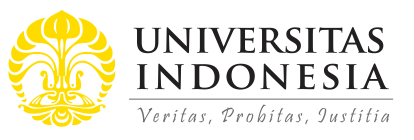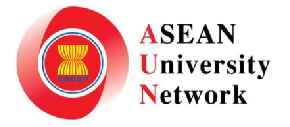
Abstract
In 2020, COVID-19 forced several communities to isolate, and radio stations stepped up as leaders in communication and media during the pandemic, especially in rural communities where internet access is lacking. This study examines the vital role for disseminating information among urban and rural communities and improving services for clients who do not have access to the internet or television news updates. Specifically, this study analyses the demographics of the listeners of Bulawanong Tinubdan (BT) Radio 98.1 FM, a radio station of the Cebu Technological University-Tuburan campus and an affiliate of the Philippine Broadcasting Service (PBS), a government-owned network. It delves into the community perspective of the station’s programs, as BT Radio 98.1 FM endeavors to be an avenue for communication as well as teaching-learning platform during unexpected lifestyle changes like the COVID-19 pandemic. In addition, this study seeks to ascertain how listeners perceive the role of BT Radio programs in assisting the community in becoming more connected despite these constraints. The results show that the station captures the majority of the younger audiences in the community, while also highlighting how a campus-based FM radio station promotes community awareness across different age groups. This strengthens the position of the radio program as a learning environment that is widely accessible and that promotes information in the community.
References
Abdulai, A.-R., Chireh, V. K., & Tchoukaleyska, R. (2021). Engaging diverse audiences: The role of community radio in rural climate change knowledge translation. Journal of Community Engagement and Scholarship, 13(3), 108–121. https://doi.org/10.54656/WYQW9689
Ahsan, M. N., & Khatun, A. (2020). Fostering disaster preparedness through community radio in cyclone-prone coastal Bangladesh. International Journal of Disaster Risk Reduction, 49, Article 101752. https://doi.org/10.1016/j.ijdrr.2020.101752
Arya, N., & SK., K. (2022). An assessment of the sustainability of community radio stations in India. The Pharma Innovation Journal, sp-11(1), 1037–1041. https://www.thepharmajournal.com/archives/2022/vol11issue1S/PartP/S-11-1-184-445.pdf
Awuah-Frimpong, R., Tham-Agyekum, E. K., Ankuyi, F., Freeman, C., Annor-Frempong, F., & Bakang, J.-E. A. (2024). Household welfare outcomes of access to and use of agricultural radio broadcast by women cocoa farmers in Tepa district, Ghana. Social Sciences & Humanities Open, 9, Article 100796. https://doi.org/10.1016/j.ssaho.2023.100796
Backhaus, B. (2023). Connections, community, coconuts: Exploring the history of regional community radio. Media International Australia, Article 1329878X2311546. https://doi.org/10.1177/1329878X231154686
Ball-Rokeach, S. J., & De-Fleur, M. L. (1976). A dependency model of mass-media effects. Communication Research, 3(1), 3–21. https://doi.org/10.1177/009365027600300101
Ball-Rokeach, S. J. (1985). The origins of individual media-system dependency: A sociological framework. Communication Research, 12(4), 485–510. https://doi.org/10.1177/009365085012004003
Bidwell, N. J., Cibin, R., Linehan, C., Maye, L., & Robinson, S. (2021). Being regulated: Licence to imagine new technology for community radio. Proceedings of the ACM on Human-Computer Interaction, 5(CSCW1), 1–27. https://doi.org/10.1145/3449228
Birsen, Ö. (2023). Transforming radio, changing listener. European Journal of Formal Sciences and Engineering, 6(1), 116–125. https://revistia.org/index.php/ejfe/article/view/6092
Chiumbu, S., & Motsaathebe, G. (Eds.). (2021). Radio, public life and citizen deliberation in South Africa. Routledge.
Cibin, R., Robinson, S., Scott, K. M., Sousa, D., Žišt, P., Maye, L., Sciannamblo, M., Ashby, S., Csíkszentmihályi, C., Pantidi, N., & Teli, M. (2020). Co-designing convivial tools to support participation in community radio. Radio Journal: International Studies in Broadcast & Audio Media, 18(1), 43–61. https://doi.org/10.1386/rjao_00015_1
Creswell, J. W., & Poth, C. N. (2016). Qualitative inquiry and research design: Choosing among five approaches (4th ed.). Sage publications.
Cunha, J., Silva, C., Guimarães, A., Sousa, P., Vieira, C., Lopes, D., & Rosário, P. (2021). No children should be left behind during COVID-19 pandemic: Description, potential reach, and participants’ perspectives of a project through radio and letters to promote self-regulatory competencies in addition, in elementary school. Frontiers in Psychology, 12, Article 647708. https://doi.org/10.3389/fpsyg.2021.647708
Data Privacy Act of 2012. (2012). https://privacy.gov.ph/data-privacy-act/
Department of Science and Technology. (2017). National ethical guidelines for health and health-related research. Philippine Council for Health Research and Development
Etumnu, E. W., Iheanacho, C. O., Okoli, A. M., Agbim, K., & Ogai, J. (2021). The role of Oziza FM Radio programme ‘Akuko Siri’ in opinion moulding among IMO State residents. International Journal of Social Sciences and Management Review, 4(5), 100–109. https://papers.ssrn.com/sol3/papers.cfm?abstract_id=4202891
Faisal, A. M., & Alhassan, A. (2018). Community access and participation in community radio broadcast: Case of Radio Gaakii, Ghana. Journal of Development and Communication Studies, 5(2), 85–102. https://doi.org/10.4314/jdcs.v5i2.6
Guo, L. (2015). Exploring the link between community radio and the community: A study of audience participation in alternative media practices. Communication, Culture and Critique, 10(1), 112–130, https://doi.org/10.1111/cccr.12141
Ho, J., & Thukral, H. (2009). Tuned in to student success: Assessing the impact of interactive radio instruction for the hardest-to-reach. Education Development Center. https://docs.edtechhub.org/lib/WH7JDBUP
Hugelius, K., Adams, M., & Romo-Murphy, E. (2019). The power of radio to promote health and resilience in natural disasters: A review. International Journal of Environmental Research and Public Health, 16(14), Article 2526. https://doi.org/10.3390/ijerph16142526
Khadijah, U. L. S., Lavigne, F., Hadian, S. D., Anwar, R. K., Sjuchro, D. W., Rizal, E., & Khoerunnisa, L. (2022). Community radio-based disaster information dissemination pattern on K-Pass FM Radio Katapang. Jurnal Kajian Informasi & Perpustakaan, 10(1), 63–74. https://doi.org/10.24198/jkip.v10i1.38550
Khatoon, S., Barros, A., & Sharma, P. (2004). Mountain Forum reaching the grassroots through community radio. Mountain Research and Development, 24(4), 364–365. https://doi.org/10.1659/0276-4741(2004)024[0364:mfrtgt]2.0.co;2
Maye, L., Robinson, S., Pantidi, N., Ganea, L., Ganea, O., Linehan, C., & McCarthy, J. (2020). Considerations for implementing technology to support community radio in rural communities. Proceedings of the 2020 CHI Conference on Human Factors in Computing Systems, 1–13. https://doi.org/10.1145/3313831.3376580
Khan, M. A. A., Khan, M. M. R., Hassan, M., Ahmed, F., & Haque, S. M. R. (2017). Role of community radio for community development in Bangladesh. The International Technology Management Review, 6(3), 94–102. https://doi.org/10.2991/itmr.2017.6.3.3
Motsaathebe, G., & Tsarwe, S. (2021). Implications of gatekeeping on talk radio. In S. Chiumbu & G. Motsaathebe (Eds.), Radio, public life and citizen deliberation in South Africa (pp. 251–266). Routledge.
Nangooba, M. B. (2020). Role of radio in improving livelihoods: The case of central broadcasting services’ project to empower women in savings and loan associations in Nsangi Sub-county, Wakiso District, Uganda. Journal of Science and Sustainable Development, 7(1), 31–40. https://www.doi.org/10.4314/jssd.v7i1.3
Nillasithanukroh, S. (2023). Broadcasting party information: Can the introduction of community radio reduce the effective number of parties? Electoral Studies, 84, Article 102637. https://doi.org/10.1016/j.electstud.2023.102637
Ogunwuyi, B. O. (2022). A survey of media resources utilization by lecturers in colleges of education, south-west Nigeria. Ghana Library Journal, 27(1), 12–22. https://doi.org/10.4314/glj.v27i1.2
Panuju, R., Susilo, D., & Sugihartati, R. (2017). A strategy for competitive broadcasting - Radio community networking in Tulungagung, Indonesia. Proceedings of the International Post-Graduate Conference on Media and Communication, 1, 467–472. https://doi.org/10.5220/0007331504670472
Prahmana, R. C. I., Hartanto, D., Kusumaningtyas, D. A., Ali, R. M., & Muchlas. (2021). Community radio-based blended learning model: A promising learning model in remote area during pandemic era. Heliyon, 7(7), Article e07511. https://doi.org/10.1016/j.heliyon.2021.e07511
Saha, S., Pradhan, S. G., & Siwakoti, A. (2021). Communicating to reduce disaster risk through radio in Nepal: A case study of Milijuli Nepali and Kathamaala. Progress in Disaster Science, 10, Article 100161. https://doi.org/10.1016/j.pdisas.2021.100161
Sahoo, S., & Behera, S. K. (2017). Community radio stations: Policy, participation and engagement in Odisha. Communication Today, 1–15.
Sakthivel, M. (2020). Technological advancements in communication to public of works: From radio-diffusion to streaming. In Broadcasters’ rights in the digital era copyright concerns on live streaming (pp. 7–32). Brill Nijhoff.
Sharma, L. (2021). Community radio by marginalized communities: A study of socio-economic profile of community radio volunteers. International Journal of Disaster Recovery and Business Continuity, 12(1).
Sharma, L., Rathore, H. S., & Sharma, G. S. (2021). Effectiveness of community radio in preservation and promotion of the indigenous culture. Psychology and Education, 58(1), 5678–5691. https://doi.org/10.17762/pae.v58i1.2202
Tietaah, G., Amoakohene, M., & Tuurusong, D. (2019). Radio redux: Audience participation and the reincarnation of radio for development in Africa. Journal of Developing Societies, 35(2), 282–302. https://doi.org/10.1177/0169796X19844916
Tuazon, (2015). Radio as a way of life.
Qiu, Q., Zuo, Y., & Zhang, M. (2021). Can live streaming save the tourism industry from a pandemic? A study of social media. International Journal of Geo-Information, 10(9), Article 595. https://doi.org/10.3390/ijgi10090595
Zhang, X., & Zhong, Z. (2020). Extending media system dependency theory to informational media use and environmentalism: A cross-national study. Telematics and Informatics, 50, Article 101378. https://doi.org/10.1016/j.tele.2020.101378
Recommended Citation
Mangubat, Fernando N. Jr; Bajao, Naomi A.; Sarucam, Jae-an V.; Gabuya, Alden Q. Jr.; and Mangubat, Florieza M.
(2024).
The Reach and Community Perspective of BT Radio Programs as Supplemental Teaching and Learning Platforms.
ASEAN Journal of Community Engagement, 8(1), 45-58.
Available at: https://doi.org/10.7454/ajce.v8i1.1223
Included in
Curriculum and Social Inquiry Commons, Educational Technology Commons, Instructional Media Design Commons, Online and Distance Education Commons, Other Education Commons







